We think of earthly life as evolving from the sea. But newly discovered microscopic “ball” fossils — found in ancient lake sediments in Scotland — suggest that evolution from single-celled to multicellular organisms might have occurred in lakes.
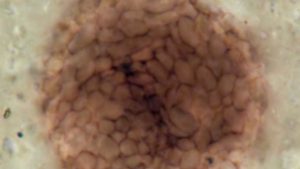

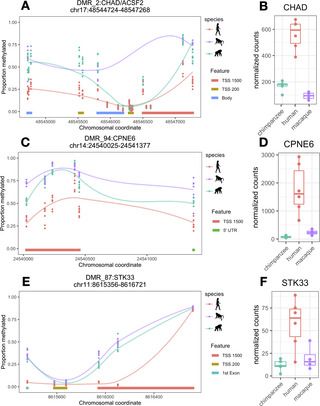
Humans are distinguished from other species by several aspects of cognition. While much comparative evolutionary neuroscience has focused on the neocortex, increasing recognition of the cerebellum’s role in cognition and motor processing has inspired considerable new research. Comparative molecular studies, however, generally continue to focus on the neocortex. We sought to characterize potential genetic regulatory traits distinguishing the human cerebellum by undertaking genome-wide epigenetic profiling of the lateral cerebellum, and compared this to the prefrontal cortex of humans, chimpanzees, and rhesus macaque monkeys. We found that humans showed greater differential CpG methylation–an epigenetic modification of DNA that can reflect past or present gene expression–in the cerebellum than the prefrontal cortex, highlighting the importance of this structure in human brain evolution. Humans also specifically show methylation differences at genes involved in neurodevelopment, neuroinflammation, synaptic plasticity, and lipid metabolism. These differences are relevant for understanding processes specific to humans, such as extensive plasticity, as well as pronounced and prevalent neurodegenerative conditions associated with aging.
Citation: Guevara EE, Hopkins WD, Hof PR, Ely JJ, Bradley BJ, Sherwood CC (2021) Comparative analysis reveals distinctive epigenetic features of the human cerebellum. PLoS Genet 17: e1009506. https://doi.org/10.1371/journal.pgen.
Editor: Takashi Gojobori, National Institute of Genetics, JAPAN.
0:00 — Title.
0:35 — Into.
1:15 — Super People of The Future.
1:46 — Neal VanDeree ‘Living Long Healthy Lives Will be Possible’ — https://www.churchofperpetuallife.org/ — https://www.youtube.com/user/COPL18
3:24 — Dr. Bill Andrews ‘Super Wonderful Future’ — https://www.sierrasci.com/
6:27 — Selim Bakırcı ‘1000 years long life’
6:58 — Rodrigo Guinea ‘Great Responsibility’ — https://www.linkedin.com/in/rodguinea/
9:22 — Significant Research.
9:40 — Significant Research — Liz Parrish — https://bioviva-science.com/
10:44 — Significant Research — Brent Nally — https://longevityplan.net/ — https://www.linkedin.com/in/brentnally/ — https://www.youtube.com/user/BrentAltonNally.
13:10 — Significant Research — Cain Hillier — https://www.linkedin.com/in/cain-hillier-50571a18a/
14:43 — Significant Research — Chris Curwen — https://www.linkedin.com/in/chris-curwen-67144b169/
17:16 — The Threshold Times.
18:41 — The Threshold Times — Brent Nally.
21:35 — The Threshold Times — Chris Curwen
24:25 — The Threshold Times — Liz Parrish.
26:21 — The Threshold Times — Nicolas Chernavsky
https://www.linkedin.com/in/nicolas-chernavsky-25265835/ — https://www.youtube.com/channel/UCUASjdn96BRlGVytmbDgRRA
27:00 — The Threshold Times — Josh Martin.
27:42 — The Threshold Times — Cain Hillier.
28:50 — The Threshold Times — Vikram Pandya — https://www.linkedin.com/in/vikrampandya/
31:24 — Ageing Is a Disease.
32:49 — Ageing Is a Disease — Neal VanDeree.
34:09 — Ageing Is a Disease — Dr. Bill Andrews.
37:48 — Ageing Is a Disease — Liz Parrish.
39:28 — Ageing Is a Disease — Brent Nally.
42:10 — Ageing Is a Disease — Aaron King.
44:44 — Ageing Is a Disease — Lukas Vismantas — https://www.linkedin.com/in/lukas-vismantas/?originalSubdomain=dk.
46:07 — Ageing Is a Disease — Cain Hillier.
48:02 — Ageing Is a Disease — Chris Curwen.
50:23 — Ageing Is a Disease — Nicolas Chernavsky.
52:49 — The Big Times.
54:40 — The Big Times — Dr. Bill Andrews.
56:52 — The Big Times — Liz Parrish.
59:16 — The Big Times — Brent Nally.
01:03:50 — The Big Times — Nicholas Mohnacky — https://www.bundleiq.com/ — https://www.linkedin.com/in/mohnacky/
01:05:00 — The Big Times — Bolek Kerous — https://www.linkedin.com/in/bolekkerous/ — https://www.youtube.com/channel/UCSpv8MA3xPskco9qdIBeNuQ
01:08:24 — The Big Times — Nicolas Chernavsky.
01:08:58 — The Big Times — Chris Curwen.
01:09:48 — The Big Times — Nicolas Chernavsky.
01:11:19 — The Big Times — Jeremy Rumble — https://www.linkedin.com/in/jeremy-rumble-42910b38/
01:12:22 — The Big Times — Jakub Czubak — https://www.linkedin.com/in/jakub-czubak-603624a9/
01:14:20 — The Big Times — Josh Martin.
01:14:50 — The Big Times — Nicolas Chernavsky.
01:20:15 — The Big Times — Brent Nally.
01:22:09 — Ending.
Omitting natural disasters like an asteroid smashing Earth or a volcano eruption we can say that improving human health and condition is the most important safety case/concern and the fundamental thing to consider and accomplish on our way to be super cosmic humanity. Significant health improvements will free us from all diseases, allow us to develop superhuman intelligence, let us totally self-realize, and consequently, help realize the infinity in the matter for the common good. However intensively we focus on intelligence, it is not possible to experience its natural consequence or the next level of its advancement/evolution if there is no good health. Coherent and consistent collective mind continuum experience is not possible without super health (Healthy life that is free from the danger of uncontrollable death). Our bodies are short-timed and not strong enough to hold up the Earth-Gravity-Geometry sized/adjusted thoughts that are necessary to naturally manage and effectively inhabit our planet.
Our lives often seem to be episodic where the memories and thoughts get lost — one might say that this is the matter of learning and perfecting the mind but this is as far from the truth as big is the number of people who struggle with having a comprehensive perspective, not because of the lack of will to do so but because of the lack of comfort of having good health and life conditions. The comfort of the living space we got ourselves on the planet after the ages of technological developments and evolution is not a direct effect of our intelligence — The main factor for human intelligence is common health. Weak wiring of the nervous system makes it difficult to communicate progress, and therefore, build with the big human intelligence. We need to constructively adjust our metabolic paths, understand and fix our cells, learn to touch and manipulate our DNA, improve internal signaling, and get super healthy if we want to use real great human intelligence to build a wonderful future. The house we can create on the fundaments of super long healthspans will be the first of its kind and magnitude — I hope to give a good vision of the new world in order to get the good motivation to proceed in life and actually get there.

Rees explained how his astronomy background meshes with his concern for humanity’s fate:
People often ask does being an astronomer have any effect on one’s attitude toward these things. I think it does in a way, because it makes us aware of the long-range future. We’re aware that it’s taken about 4 billion years for life to evolve from simple beginnings to our biosphere of which we are a part, but we also know that the sun is less than halfway through its life and the universe may go on forever. So we are not the culmination of evolution. Post-humans are going to have far longer to evolve. We can’t conceive what they’d be like, but if life is a rarity in the universe, then, of course, the stakes are very high if we snuff things out this century.
Bottom line: From nuclear weapons to biowarfare to cyberattacks, humanity has much to overcome. Martin Rees and Frederick Lamb discuss the obstacles we face as we look forward to humanity’s future on Earth.
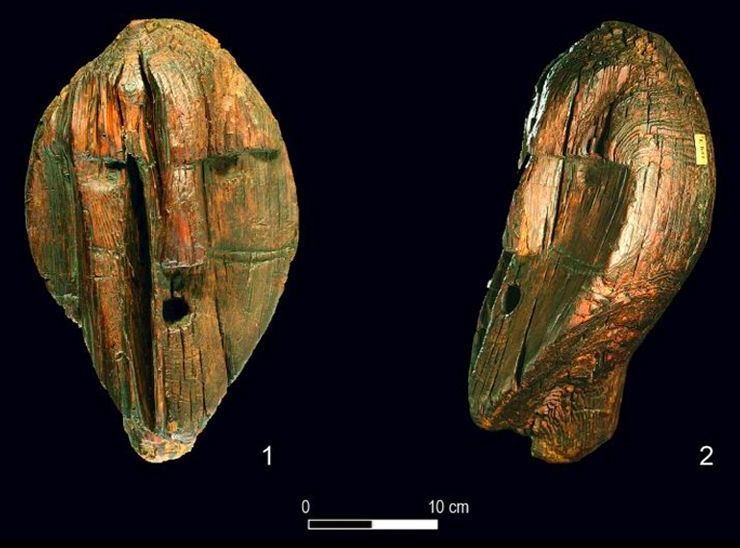
As the Times reports, researchers have been puzzling over the age of the Shigir sculpture for decades. The debate has major implications for the study of prehistory, which tends to emphasize a Western-centric view of human development.
In 1997, Russian scientists carbon-dated the totem pole to about 9500 years ago. Many in the scientific community rejected these findings as implausible: Reluctant to believe that hunter-gatherer communities in the Urals and Siberia had created art or formed cultures of their own, says Terberger to the Times, researchers instead presented a narrative of human evolution that centered European history, with ancient farming societies in the Fertile Crescent eventually sowing the seeds of Western civilization.
Prevailing views over the past century, adds Terberger, regarded hunter-gatherers as “inferior to early agrarian communities emerging at that time in the Levant. At the same time, the archaeological evidence from the Urals and Siberia was underestimated and neglected.”
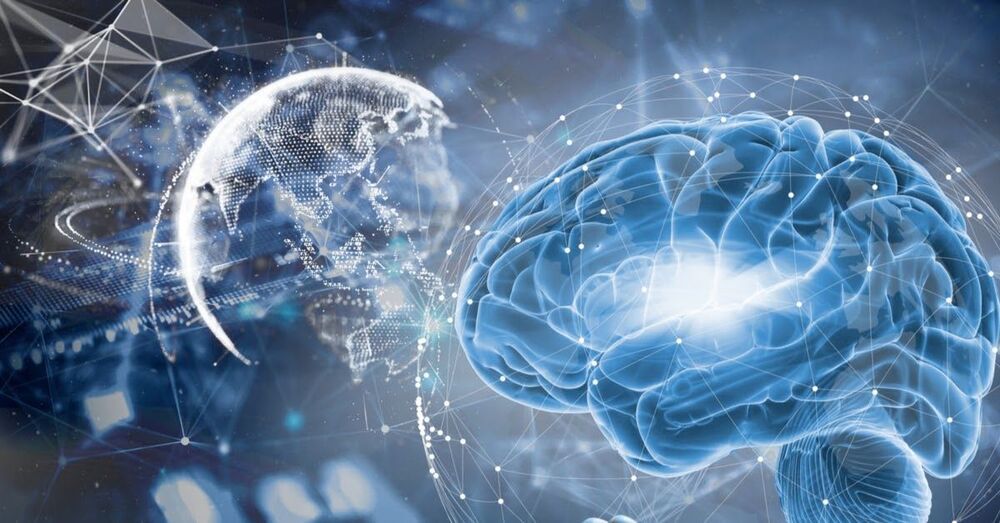
The Syntellect Emergence seems to be a cosmic necessity, and in the long run, any voices calling to resist the cybernetic fusion of the mind will be no more influential than the voices calling, right now, to eradicate civilization and return to the jungle. Nature’s tendency to build up hierarchies of emergent patterns, the heuristic law of evolution, supersedes the human race itself. We see it time and again, Nature is constantly trying to combine seemingly opposing forces, to assemble existing parts into the new wholes through the universal process of radical emergence. We are bound to transcend our biology, our human condition, our limited dimensionality, we are bound to transcend ourselves.
#TranscendentalCybernetics #CyberneticSingularity #SyntellectEmergence
Syntellect Emergence is hypothesized to be the next meta-system transition, becoming one Global Mind — that constitutes the Cybernetic Singularity.
Great new episode with Harvard University geologist Andrew Knoll who chats about the grand sweep of Earth’s history.
Harvard University geologist Andrew H. Knoll takes on the grand sweep of Earth’s formation and evolution in his new book A Brief History of Earth: Four Billion Years in Eight Chapters. He succinctly describes Earth from its cosmological beginnings in a molecular cloud on through to the present day. It’s a fine line between the vacuum of space and the planet on which we walk.
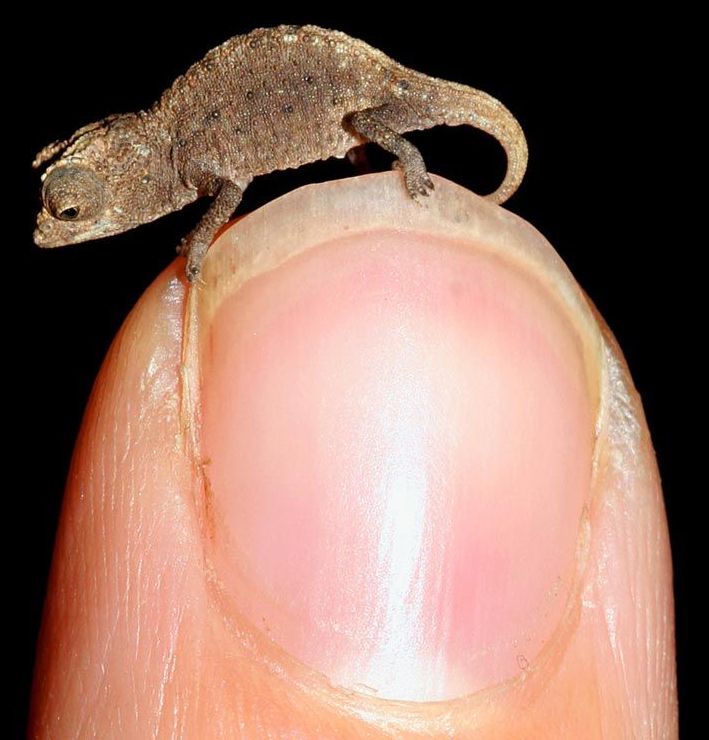
It is an old-standing theory in evolutionary ecology: animal species on islands have the tendency to become either giants or dwarfs in comparison to mainland relatives. Since its formulation in the 1960s, however, the ‘island rule’ has been severely debated by scientists. In a new publication in Nature Ecology and Evolution on April 15, 2021, researchers solved this debate by analyzing thousands of vertebrate species. They show that the island rule effects are widespread in mammals, birds, and reptiles, but less evident in amphibians.
Dwarf hippos and elephants in the Mediterranean islands are examples of large species that exhibited dwarfism. On the other hand, small mainland species may have evolved into giants after colonizing islands, giving rise to such oddities as the St Kilda field mouse (twice the size of its mainland ancestor), the infamous dodo of Mauritius (a giant pigeon), and the Komodo dragon.
In 1973, Leigh van Valen was the first that formulated the theory, based on the study by mammologist J. Bristol Foster in 1964, that animal species follow an evolutionary pattern when it comes to their body sizes. Species on islands have the tendency to become either giants or dwarfs in comparison to mainland relatives. “Species are limited to the environment on an island. The level of threat from predatory animals is much lower or non-existent,” says Ana Benítez-Lopez, who carried out the research at Radboud University, now researcher at Doñana Biological Station (EBD-CSIC, Spain). “But also limited resources are available.” However, until now, many studies showed conflicting results which led to severe debate about this theory: is it really a pattern, or just an evolutionary coincidence?

Employees play a vital role in ensuring their company’s cybersecurity bubble remains intact. Many malware campaigns begin by sending an e-mail communication to employees. To learn basic cybersecurity hygiene, employees must become familiar with password management, identify and report security threats, and recognize suspicious behavior. Regular content and training will assist employees in countering any malware threats they encounter.
Adopt a culture of comprehensive security.
Given the ongoing evolution of malware attacks and their capability to surpass what they were capable of, organizations should prioritize a strong malware protection strategy. Consultation with experienced cybersecurity experts like Indusface can help them create a solution that meets their needs.
